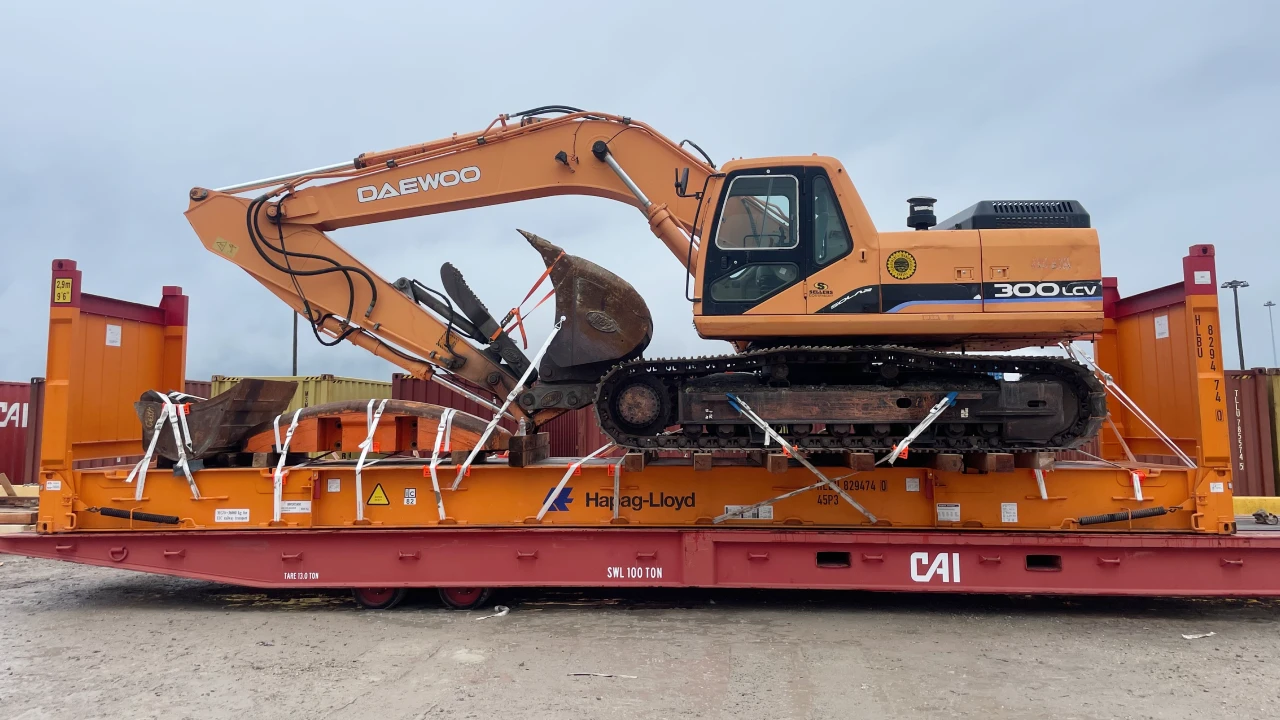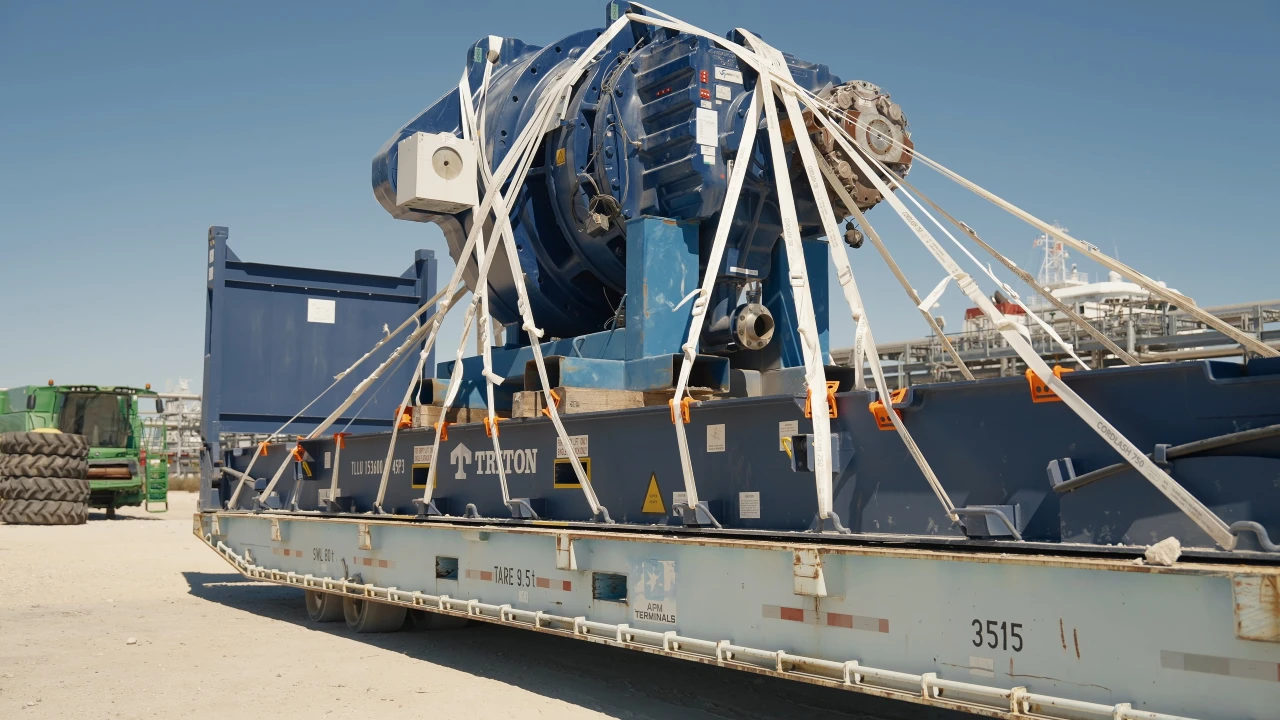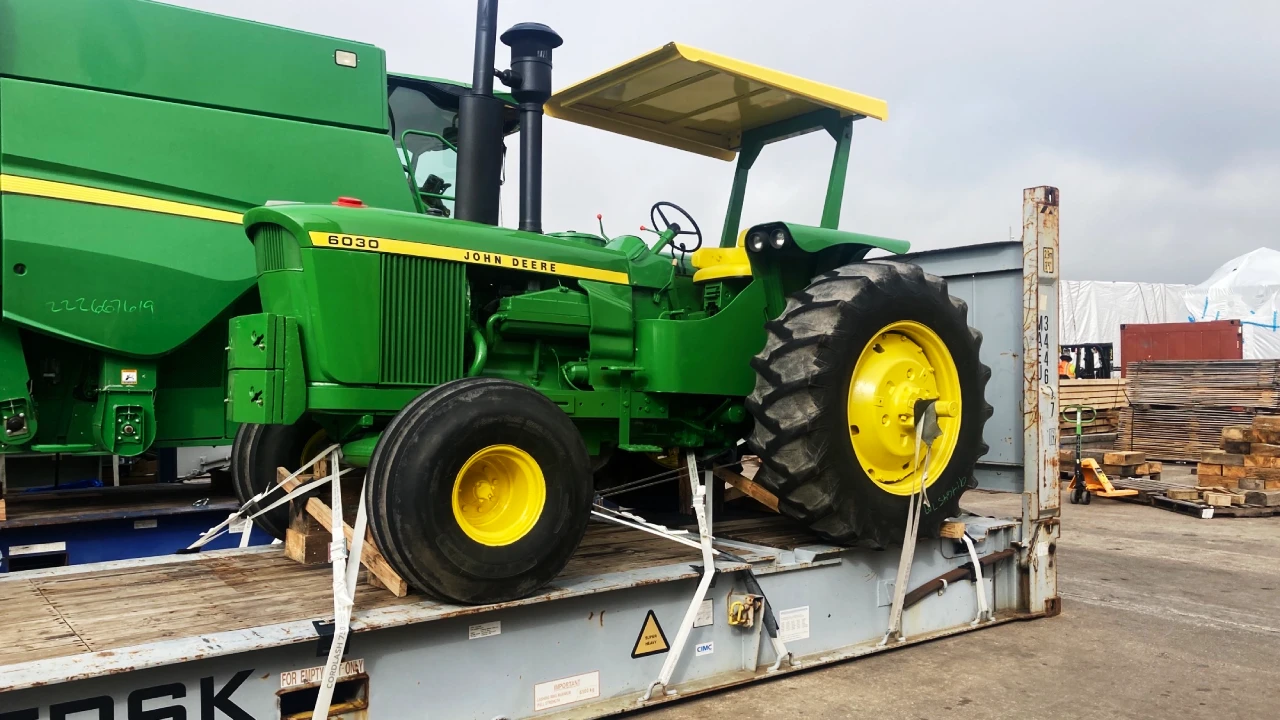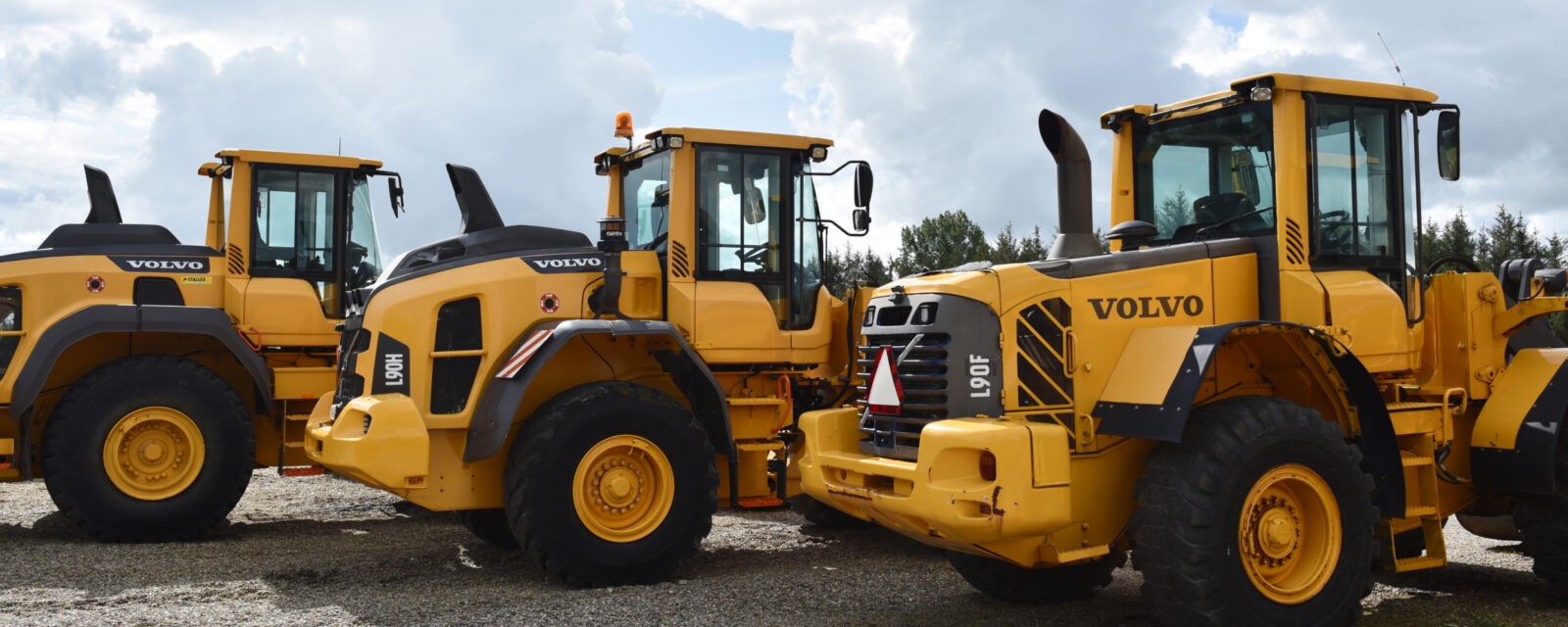
The global construction machinery industry is impressive and scope, exemplified by its global market size of $337 billion in 2023. With an eye on 2027, the construction machinery market is projected to reach a staggering $458.34 billion, driven by a continuous 8% compound annual growth rate (according to The Business Research Company’s “Construction Machinery Global Market Report 2023”.)
The industry’s size reflects its critical role in large-scale building projects and infrastructure development worldwide. This robust performance is further highlighted by the significant revenues generated by the top construction equipment manufacturers, who are not just the backbone of this sector but also the drivers of technological advancements and efficiency in the field.
Leading Global Manufacturers of Construction Equipment
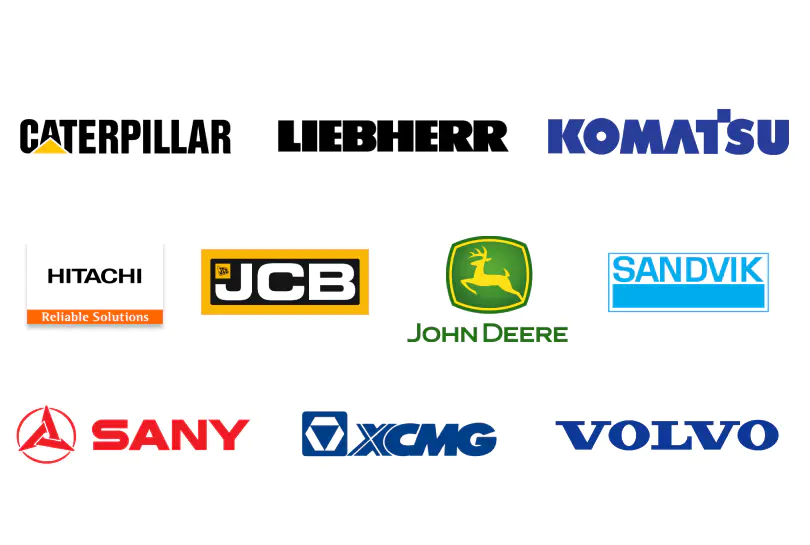
- Caterpillar Inc. (Founded in 1925, USA) Caterpillar, the global leader in construction equipment that had 16.3% of global market share in 2022*. The company offers an extensive range that includes excavators, loaders, and dozers. Known for innovation, they consistently lead in market share and technological advancements in machinery.
- Komatsu Ltd. (Founded in 1921, Japan) Komatsu is renowned for its construction and mining equipment, particularly excelling in excavator technology. They held a significant global market share of 10.7% in 2022* . The company has strong positions in Asia, and are celebrated for their quality and reliability.
- XCMG Group (Founded in 1989, China) XCMG, China’s premier construction equipment manufacturer with a global market share of 5.8% in 2022*,. They specialize in cranes and road construction machinery. They have rapidly grown in the global market and are known for their robust equipment and competitive pricing.
- Deere & Company (Founded in 1837, USA) Operating under the brand John Deere, this company is a major player in agricultural and construction machinery, known for their tractors and loaders. The company had a 5.4% global market share of construction machinery equipment in 2022*. They combine a rich history with ongoing innovation in agricultural and construction equipment.
- Sany Heavy Industry Co., Ltd. (Founded in 1989, China) Sany stands out in concrete and excavator machinery. They have expanded globally with a reputation for durable equipment and have seen a remarkable growth with market share of 5.2% in 2022* and revenue in recent years.
- Volvo Construction Equipment (Part of Volvo Group, Sweden) Volvo CE, known for their trucks and heavy machinery, offers a wide range of equipment, including excavators and loaders. They are leaders in sustainable construction practices and machinery efficiency. The company has 4.3% market share in construction machinery equipment.
- Liebherr Group (Founded in 1949, Germany) Liebherr specializes in cranes, loaders, and excavators. They are known for powerful machinery like the LTM 11200 crane and hold a significant position in the European market and global market with 4.3% construction machinery market share in 2022*.
- Hitachi Construction Machinery Co., Ltd. (Founded in 1970, Japan) A subsidiary of Hitachi, they offer a range of equipment including excavators and loaders. Known for technological innovation, they are a strong player in the Asia-Pacific market and global market with 4% share in 2022*.
- Sandvik AB (Founded in 1862, Sweden) Sandvik, primarily known for mining equipment, also offers construction machinery. They are recognized for their cutting-edge technology and have shown impressive global growth through sales and acquisitions. In 2022, the company had a 3.4% global market share.
- JCB Service (Founded in 1945, UK) JCB, a leading manufacturer in Europe, specializes in diggers and backhoes. They are known for their innovations in machinery design and have a growing presence in the international market with 2% global market share*.
* According to the report on “Leading construction equipment manufacturers in 2022, based on global market share” by Statista.com
Challenges in Shipping Heavy Construction Equipment
Shipping construction equipment domestically and internationally poses several distinct challenges for companies:
Logistical Complexity
Coordinating transportation across various regions requires precise planning and execution because of:
- Diverse Infrastructures and Regulations: Regions boast unique transportation infrastructures, from high-speed rail networks in Asia to sprawling highway systems in the US. Each region has its own set of regulations, weight limits, and safety protocols
- Interconnected Web of Dependencies: Transportation systems are intricately linked. Delays in one region can ripple outwards, impacting shipments and schedules across the globe
- Real-time adjustments and contingencies: The best plans can be waylaid by unforeseen circumstances, like bad weather, accidents, or infrastructure issues
Size and Weight Restrictions
Oversized or heavy equipment may face strict regulations and additional costs. Main challenges include:
- Infrastructure Limitations: Bridges, roads, and tunnels often have weight restrictions, forcing detours or specialized routes for oversized equipment
- Specialized Vehicles: Standard trucks and trailers simply can’t handle the sheer mass of heavy machinery. Specially designed heavy haulers with multiple axles and reinforced suspensions are required, adding to the cost and complexity of transportation
- Permitting Maze: Navigating the labyrinth of permits and regulations for overweight vehicles is a logistical hurdle in itself. Each region and state has its own rules, and non-compliance can lead to hefty fines and delays
Customs and Import Regulations
International shipments must navigate complex customs procedures and varying import laws. Among the main headaches are:
- Paperwork: Customs clearance involves a mountain of paperwork – permits, licenses, invoices, certificates of origin, and more. Each document needs to be meticulously filled out and perfectly in line with regulations, or risk delays, fines, or even equipment seizure
- Classification: Customs officials need to classify the equipment correctly to determine applicable duties and taxes. This can be tricky for complex machinery with multiple components or specialized functions. Misclassification can lead to hefty fees and unexpected delays
- Regional Regulations: Customs regulations and import policies vary significantly from country to country. What’s smooth sailing in one nation might be a bureaucratic nightmare in another. Navigating this patchwork of rules and procedures requires expertise and adaptability
Risk of Damage or Loss
The equipment is often expensive and vulnerable to damage or loss during transit. Also, it is necessary to mention:
- Environmental Perils: Natural forces are no friend to heavy equipment. Storms, floods, and extreme temperatures can wreak havoc on exposed machinery, leading to rust, corrosion, and even structural damage
- Human Error: Despite careful planning and technology, human error can still play a role. Miscalculations, mishandling, and accidents during loading, transport, or unloading can lead to damage or even complete loss
- Risk and Size/Weight: These challenges often intertwine with the issues of size and weight discussed earlier. Oversized equipment might require special handling and transportation methods, increasing the risk of damage during loading and unloading
Costs
High shipping costs, including insurance and potential tariffs, can significantly impact the overall budget. Moreover, we should mention:
- The Fuel Factor: The global dance of fuel prices casts a long shadow on shipping costs. Fluctuations in diesel, gasoline, and marine fuel can significantly impact transportation budgets
- Compliance Costs: Navigating the labyrinth of customs regulations and import permits requires expert assistance, further adding to the total price
Transportation Infrastructure
Inadequate infrastructure in certain regions can hinder efficient transportation. Here, we should highlight such issues as:
- Roads: Worn-out roads, riddled with cracks and potholes, pose a constant threat to both equipment and drivers
- Tunnels: Low clearances and sharp turns in tunnels can be a nightmare for oversized equipment
Cultural and Language Barriers
International shipping often involves navigating different languages and business cultures. The main challenges include:
- Miscommunication: It can become a major roadblock when dealing with foreign customs officials, port employees, or local authorities
- The Cultural Clashes: Time zones, work schedules, and business etiquette can vary drastically across cultures. What’s considered efficient in one country might seem rude or pushy in another
How Atlantic Project Cargo Overcomes Challenges When Shipping Heavy Construction Equipment
Atlantic Project Cargo specializes in shipping heavy construction equipment globally, leveraging over 20 years of experience and a vast network, including 11 warehouses in North America.
We handle a wide range of equipment, offering multimodal transport solutions and expertly navigating international export challenges, including customs and regulatory compliance.
Our services encompass everything from machinery disassembly and Ro-Ro shipping to detailed logistics management, ensuring efficient, cost-effective, and timely delivery.
Our commitment to customized, client-focused solutions guarantees the safe and reliable transportation of oversized construction machinery.
The Future of Construction and Heavy Equipment Transportation
In the coming years, the shipping of construction equipment is poised for a revolutionary shift, fueled by breakthroughs in technology and a push towards green practices. We can expect a surge in the use of self-driving and electric vehicles tailored for heavy loads, offering greener and more efficient transportation options.
Advanced tracking and route planning, powered by GPS and IoT technologies, will revolutionize logistics, while artificial intelligence will be key in predicting maintenance needs and streamlining shipment operations. These innovations promise to make the shipping process more streamlined and eco-conscious.
Moreover, a move towards unified international shipping standards will ease the flow of equipment across borders, paving the way for a more seamless and interconnected global construction industry.
How to ship heavy equipment via ocean freight?
Additional Services by Atlantic Project Cargo
Atlantic Project Cargo offers a variety of specialized services, including universally recognized cargo insurance, complete customs brokerage services with support in Temporary Import Bonds (TIB), expertise in Importer Security Filing (ISF), and equipment dismantling and container packing services.
At Atlantic Project Cargo, we’re your reliable partner for handling all customs and managing international heavy and oversized freights. You can reach out to our dedicated team at +1 (305) 224-1975 or email us at [email protected].
Read More
